Biotechnology is the study of using biological components derived from different organisms to obtain technological development. It influences multiple fields. The most common fields of biotechnology are the medical and agricultural fields.
In recent years the application of biotechnology has increased rapidly. So in modern society, attraction towards biotechnology as a career has increased too. Biotechnology is a platform to use living cells and modify them to generate desired benefits. The application of biotechnology starts from fermentation to biofuels and biomass production.
Biotechnology has changed society in various aspects. Let’s know how it can change your career path.
Definition of Bio-Technology
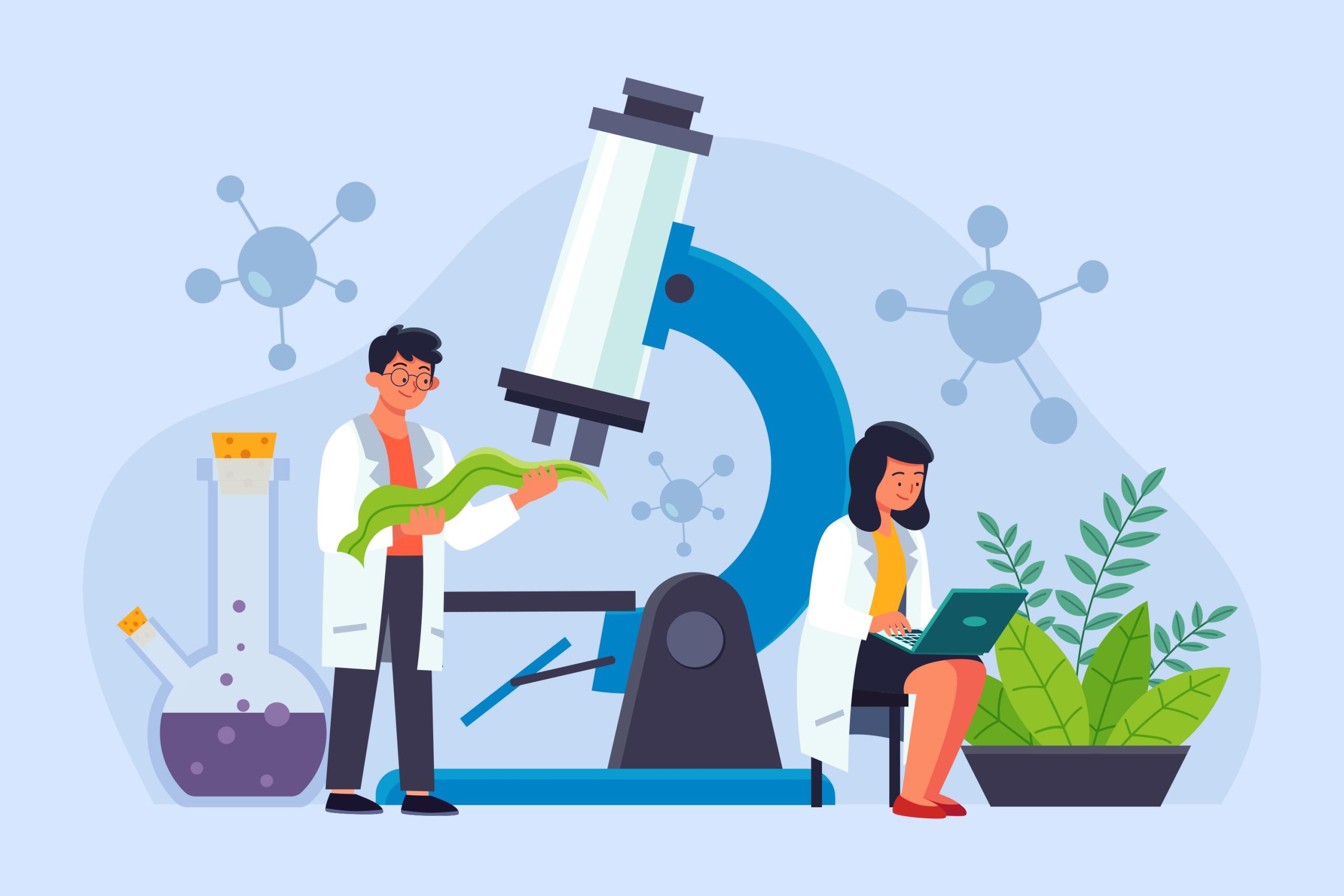
Biotechnology is the use of living systems and organisms to develop or make products, or “any technological application that uses biological systems, living organisms or derivatives thereof, to make or modify products or processes for specific use” Biotechnology includes a wide range of procedures for modifying living organisms according to human purposes – from traditional breeding techniques to more modern methods such as gene manipulation.
Biotechnology can be used to produce many different kinds of products, including food, pharmaceuticals, and industrial enzymes. It also has a number of applications in environmental management and agriculture. Biotechnology is an interdisciplinary field that combines biology and technology. Biologists use biotechnology to study the inner workings of cells and to manipulate genes. Technologists develop new ways to use living cells and their products. Together, they create new technologies that have a wide range of applications in medicine, agriculture, environmental science, and industry.
Biotechnology is a rapidly evolving field with huge potential. It holds the promise of new treatments for diseases, improved crops and livestock, and cleaner sources of energy. Biotechnology is also raising ethical concerns about the manipulation of life forms. As the field continues to grow, it will be important to monitor its development and ensure that it is used responsibly.
Types of Biotechnology
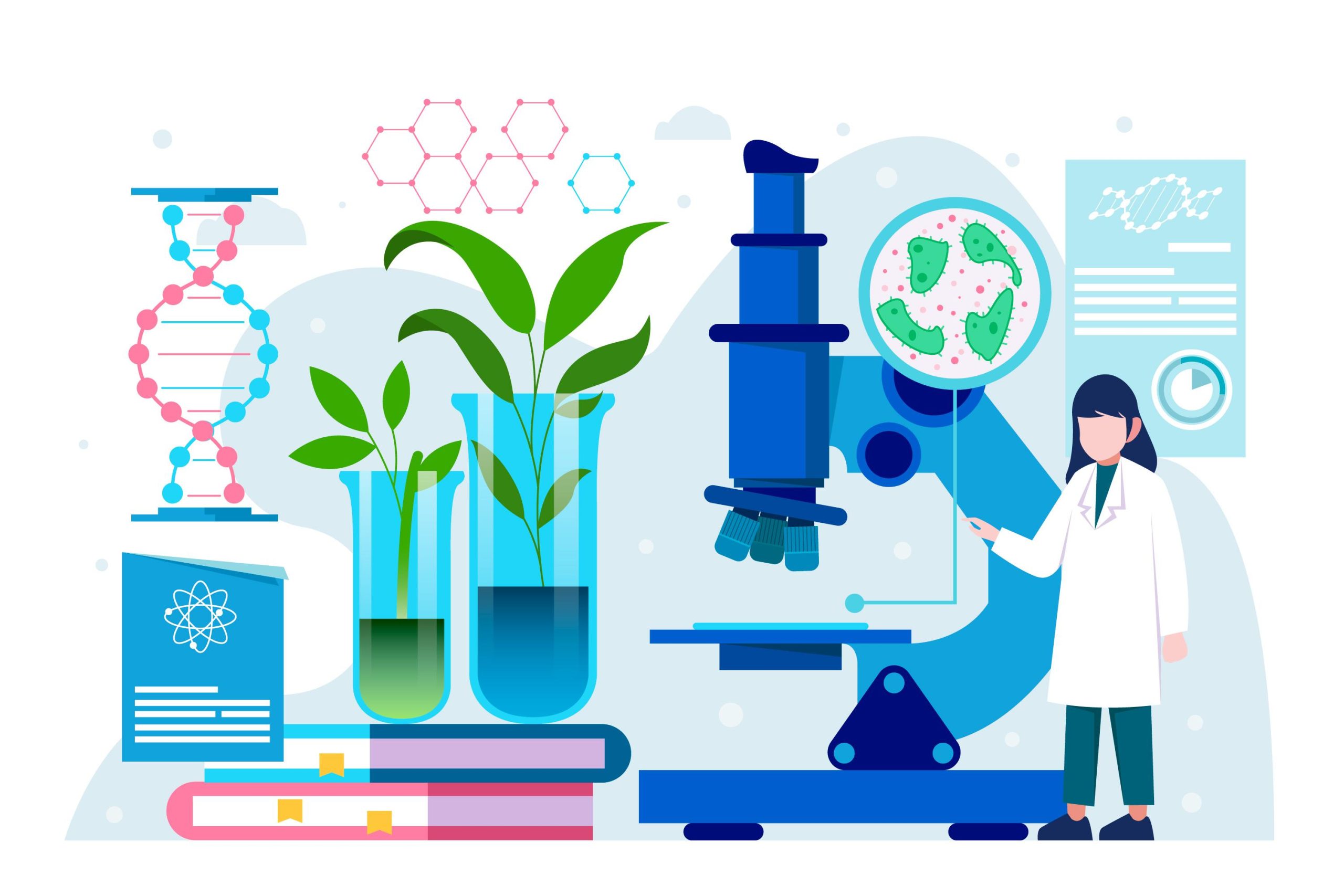
The subject of biotechnology is divided into various specific fields. Every field is concerned with a topic related to biotechnology. Some specific colours denote the fields. Every type of biotechnology has its own benefit.
Medical biotechnology
The colour red symbolises medical biotechnology. Medical biotechnology is concerned with the health aspect of the people around. It researches cells and the effect of different things on cells to create better human health conditions.
In this field, various techniques are used to create pharmaceutical drugs, supplements and vaccines. It is responsible for creating numerous antibiotics to combat pathogens inside the human body. The antibiotics are made using microbes. It has also developed more than 250 vaccines till now. The DNA culture helps in creating stem cells for artificial organs.
Agricultural biotechnology
Agricultural biotechnology is one of the widely used fields of biotechnology. It is denoted with the colour green. In agricultural biotechnology, crops are created by genetic modifications to create better protection from pests, microbes, and extreme weather conditions.
In genetic modification, biotechnologists identify a special character in a plant and determine the gene responsible for it. They take that gene from the source plant and put it in the desired plant. By this, we get a better plant. The same thing is also carried out with farm animals in selective breeding.
Industrial biotechnology
Industrial biotechnology, or white biotechnology, is a branch of biotechnology that deals with industrial issues. In industries like paper and pulp, chemical manufacturing, and textile, biotechnology is used to increase the quality and quantity of production.
It uses cellular products to develop modern-day industrial products. It has contributed to biofuels, biogas and other chemicals. The development of natural alternatives has helped in reducing greenhouse gasses. It also has a great impact on the economy.
It helps produce various chemicals and biofuels as an effective alternative for pollutant materials.
Food biotechnology
The colour yellow symbolises food biotechnology. This branch of biotechnology is used for the betterment of food production. Various biological techniques enhance the quality of the food. It ensures the quality of food by determining whether it satisfies the provided measures.
Marine biotechnology
Marine or blue biotechnology is based on marine biological resources. In this branch, many marine organisms are cultured to obtain certain products. Through aquaculture, we can obtain fish oils, pearls from oysters and other essential things from different planktons and algae.
The algae culture is essential for the production of biofuel. Other marine products are used in health care and industrial sections.
Environment biotechnology
Grey biotechnology deals with the environmental aspect of biotechnology. In this branch, scientists use different measures to restrain pollution and regenerate the contaminated resources. It focuses both on conservation and restoration.
Using various non-polluting resources can put pollution in check. Biotechnologists are also developing some microbes that can easily disintegrate plastics to make soil pollution-free.
Bio information technology
Golden biotechnology or bio-information technology is a branch of biotechnology in which biological information is stored, altered or transferred between different organisms. This branch works on DNA and genetic materials to mutate organisms for better production.
Philosophical Biotechnology
Violet biotechnology is a branch dealing with the philosophical aspect of biotechnology. It helps the government to understand situations and possibilities. It helps create laws to safeguard biological resources and determine guidelines for the use of these resources.
Bioterrorism
This is the negative zone of biotechnology. This field is associated with biological warfare using biological weapons. They collect hazardous materials from organisms to implement in bioterrorism.
Advantages of Biotechnology
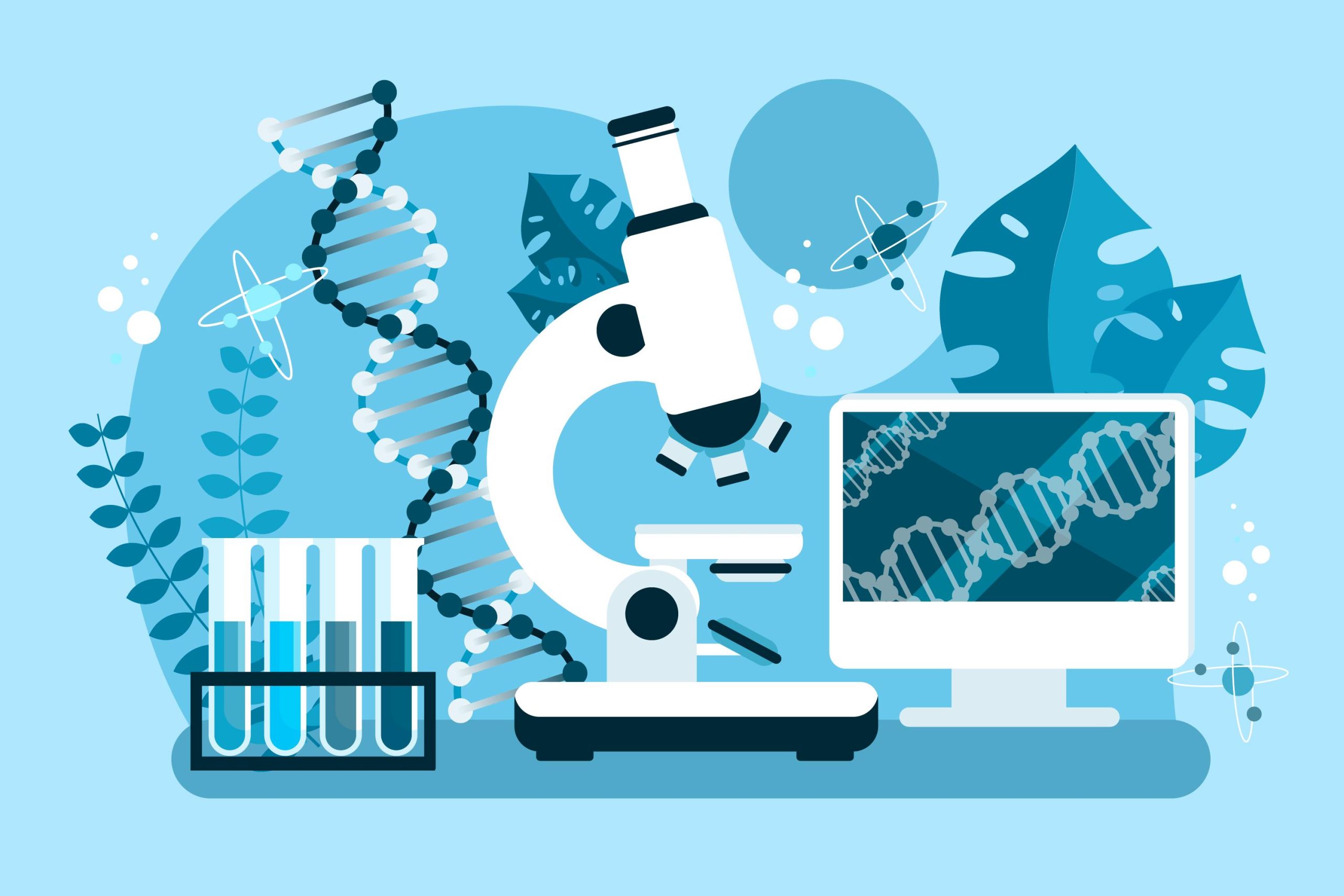
The study of using biological resources in technological development has numerous advantages. It has many positive effects on human life. It provides humans with better living conditions.
Improves medical diagnosis
The advancement in biotechnology has improved the medical sector to a new level. The engineering involved in biotechnology helps it to develop multiple equipments for better diagnosis. A better diagnosis helps the doctors to decide on the right treatment for the patient.
Development in DNA makeup
DNA modification is a major part of Biotechnology. It helps collect genetic materials from one organism and use them in the desired organism to get a genetically better breed. This is also known as selective breeding.
Modified plants
The genetic makeup is also used in the plant to get a better hybrid version of the plant. The outcome plant has the character of both parent plants. This helps in creating crops with utmost nutrition quality.
Forensic
Biotechnology also helps to solve crimes by using various biological technologies. It helps forensic investigations to collect and separate DNA materials of different persons found in one place.
Biopower
Biofuels are proved as a revolutionary step in energy conservation. Some specific microbes and algae are used to generate fuels. The methane gas plants are also the result of biotechnology. Microbes are also used in many chemical productions.
Environmental protection
With the help of biofuels and other biological alternatives, biotechnology contributes to environmental protection. Many microbes are also intended to use in order to eradicate contamination.
Application of Biotechnology
Biotechnology has a vast application in the modern world. It has contributed to almost every field. Some of the applications of biotechnology are discussed below.
Wound healing
Biotechnology has a great impact on the health care industry. It has also changed the traditional dressing technique. A material called Chitosan is derived from crab and shrimp shells that are used as an effective dressing coat for wounds.
Detergent
Biotechnology has introduced protease, which is used as a modern-day detergent. These types of detergents can easily wash away different elements present on the cloth.
Fertiliser
The production of protease also results in the production of a byproduct called biomass. The biomass is used as an effective fertiliser that is non-toxic in nature.
Fishing net
Biotechnology has produced a strong fabric out of cotton that is highly durable and has enhanced absorbency. These fabrics are used in garments and fishing nets.
Chemicals
Biocatalysts are used to produce chemicals like HCL faster and cheaper.
Biofuel
Biofuel is a fuel produced from organic wastes, a sustainable alternative to petroleum fuels. It creates less pollution and is highly efficient.
Why Choose Biotechnology As a Career?
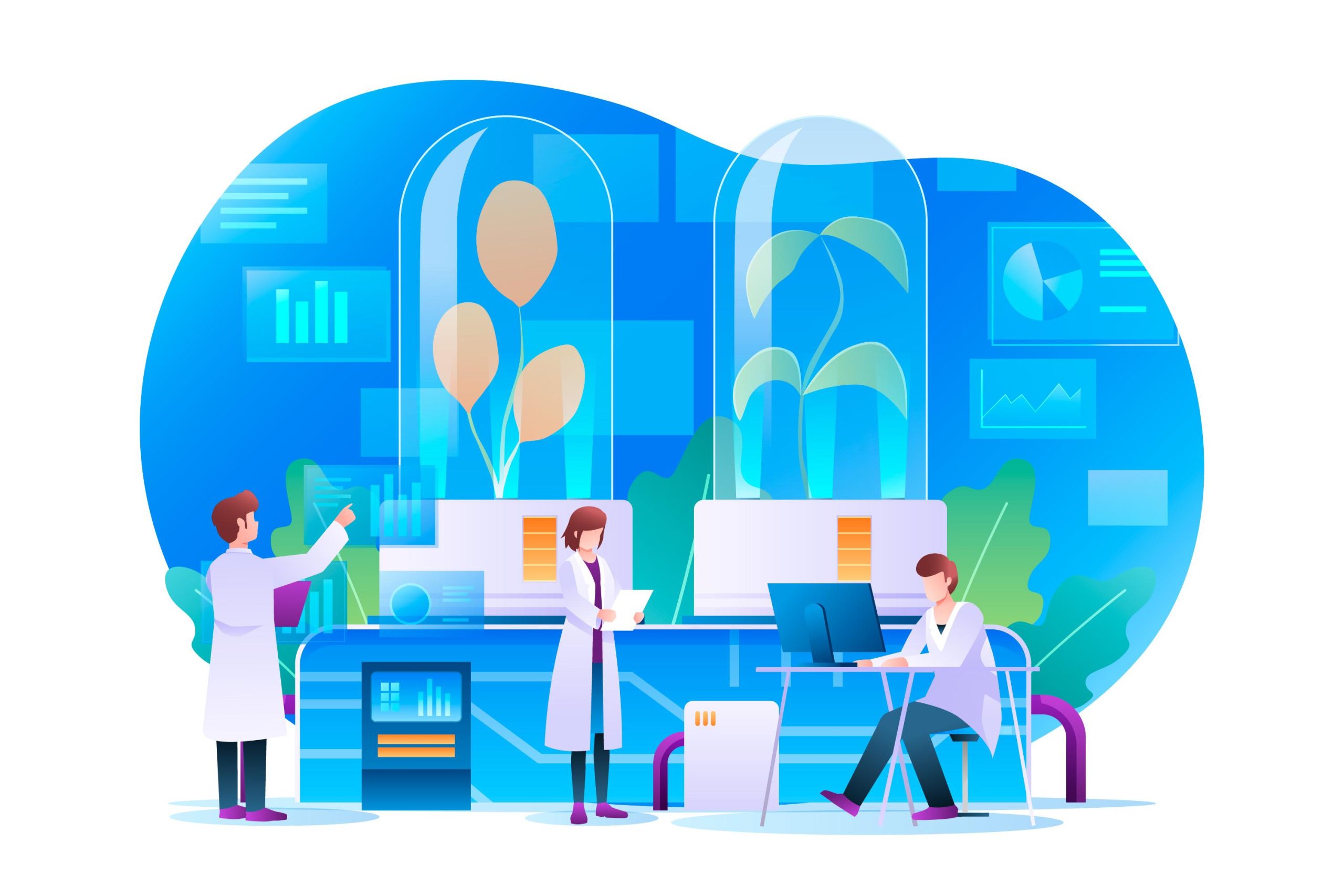
Biotechnology is a field where professionals get the opportunity to use various scientific approaches to research the sustainable development of modern technology. Biotechnology uses living organisms like plants, animals, and microbes and their biological materials to solve modern-day issues. Choosing biotechnology as a career helps you in numerous aspects.
Great scopes for jobs
Biotechnology brings you an extensive opportunity for jobs in both government and non-government organisations. You can work in various positions in a field concerned about health care, agriculture, environment and industrial development. The positions are provided as per the educational level.
Key to sustainable development
The rapid development in biotechnology helps to create better alternatives for our modern-day issues. With the help of biotechnology, we can create multiple products like biofuel, vaccines, anti-pest crops etc., to fulfil our needs and protect nature simultaneously.
Betterment of food production
The quality crops made by genetic modifications are the gift of biotechnology. Biotechnology also helps to grow foods out of microbes and other materials. The innovations associated with biotechnology are working to increase food production.
Technological revolution
Biotechnology is considered the engineering of biology. The new developments in biotechnology are made using products of organisms. In a time when the environment is largely affected by technological developments, biotechnology is a better replacement.
Biotechnologist
Biotechnologists are either private or government employees, constantly working in laboratories on developing various technologies and procedures using microorganisms. They work on various topics like agriculture, food manufacturing, health care and pharmaceuticals.
Biotechnologists also work on genetics to improve the quality of organisms by creating genetically modified plants and animals.
Job Roles For A Biotechnologist
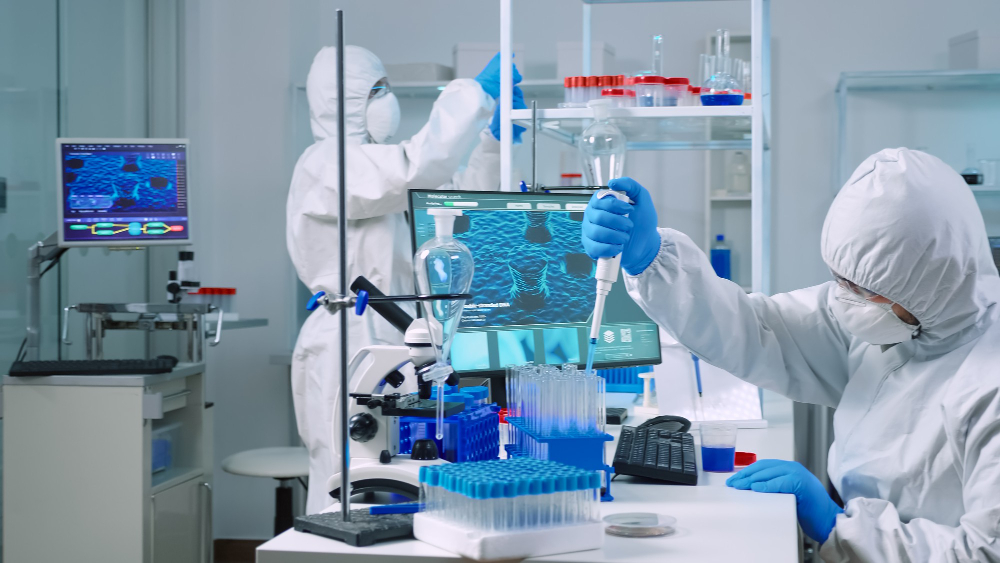
Biotechnology is one of the best research and development fields, so, Its use is increasing daily. It has various job opportunities. These jobs are related to the health care, industrial, agricultural, and environmental sectors.
Biomedical Engineer
Biomedical Engineers work on developing medical types of equipment using engineering skills. These developed pieces of equipment help in better diagnosis.
Microbiologist
Microbiologists work in labs, researching various microorganisms and their behaviour in different environments. This helps understand the threats from a microorganism and the nature of the drug required to deal with it. It also helps in creating vaccines.
Microbiologists are appointed in hospitals, medical centres, research centres, and laboratories.
Biostatisticians
In this profession, the statisticians work to gather information about a present condition and analyse them to determine the possible outcomes. This helps to take precautionary measures beforehand. Biostatisticians are paid an average of 30,000 Rs per month to generate accurate statistics.
Epidemiologists
Epidemiologists study the epidemics in different areas and the possible procedures to stop, control and eradicate them. They gather information about the type of disease, its main cause, contagion rate and mutation rate of disease-causing organisms. The average monthly salary of a government Epidemiologist is 75,000 Rs.
Biochemists
A biochemist is a profession where the person must study different organisms and their various biological processes. biotechnologists may examine the processes like cell development, genetics and other vital changes, and the reports may be used to produce different supplements to improve the quality of human life
Biochemists work to create better solutions for real-life issues. They use every aspect of science to develop new products. Both government and private organisations can hire biochemists.
clinical research associate
A clinical research associate determines a drug’s effectiveness by conducting specific clinical trials. It helps to understand the benefits and risks related to the use of a drug. They work alongside the doctors and regulate the whole process. With the rising necessity of drugs, this profession provides an average of 20,000 Rs per month.
Biotechnology instructors
Biotechnology instructor is a very prestigious profession related to biotechnology. In this profession, you must provide essential knowledge on different aspects of biotechnology.
They not only teach students but also guide students to conduct research and experiments. The instructors can expect a salary of 20,000 per month for their teaching skills.
Food safety officers
Biotechnology also helps a student to become a food safety officer. A food safety officer regulates and ensures the safety majors of food preparation. The officer is appointed to check if the food is prepared and stored safely by testing the food samples.
They can be appointed by Central Drugs Standard Control Organisation or other organisations. The average salary of a food safety officer is 25,000 Rs.
Conclusion
Biotechnology has various scopes to start your carrier. This branch of biology is rapidly being used to create a safe and better future. It provides you with adequate knowledge that you can use in eradicating diseases. Follow the article and know your possible future with biotechnology as a career.

